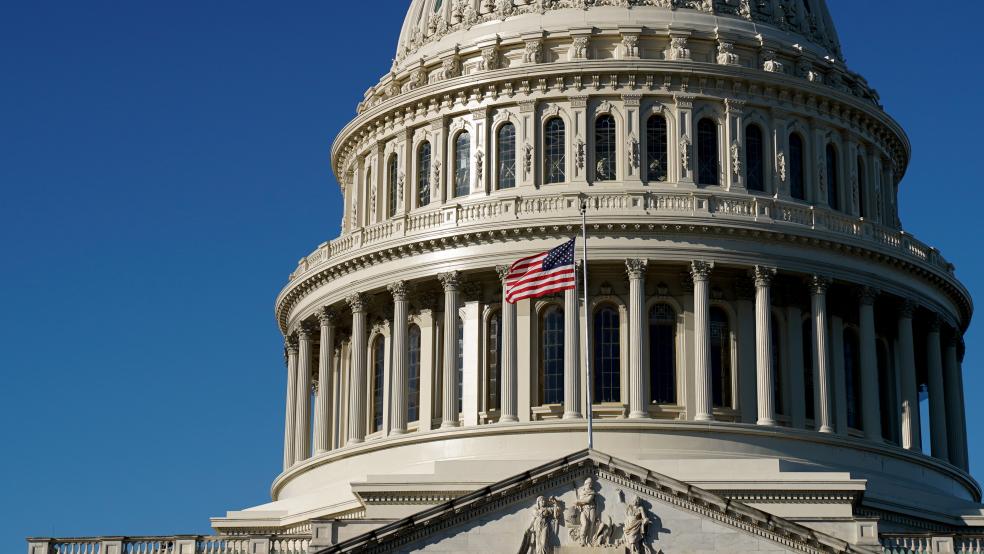President-elect Joe Biden’s plan to pass a multi-trillion-dollar stimulus package in the early days of his administration could get caught up with the looming impeachment of President Trump.
House Democrats signaled Monday that unless Vice President Mike Pence acts to remove the president from office by invoking the 25th Amendment, they plan to vote to impeach Trump on Wednesday for his role in inciting the deadly insurrection in Washington last week. Members of the House Judiciary Committee introduced an article of impeachment Monday, and it reportedly already has majority support in the House. (For more on the dynamics of the impeachment effort, see this piece at Politico.)
Biden plans to roll out his stimulus plan on Thursday, and it’s expected to include an increase in the value of relief checks for individuals to $2,000, substantial support for state and local governments and additional funding for vaccine distribution, among other things. But there are growing concerns that the Senate could get bogged down by the politics and logistics of the impeachment effort, delaying consideration of the new stimulus proposal or other key items on Biden’s early agenda.
Biden said Monday that he hopes the Senate could divide its workload once he takes office, spending half of its time on the impeachment and half on his agenda, including confirmation of his cabinet and taking up his stimulus package. But it’s not clear that the Senate could or would operate this way.
“My priority is to get, first and foremost, a stimulus bill passed and secondly, again to rebuild the economy,” Biden said Monday. “I’ve been speaking with some of my Republican colleagues about being able to move on a second package sooner than later,” he said, referring to his proposal.
Another option for Democrats would be to delay sending the article of impeachment to the Senate, providing the upper chamber with enough time to address Biden’s top priorities before turning to a trial of Trump.
Majority Whip Rep. Jim Clyburn (D-SC) said Sunday that the House could delay transmission of the article of impeachment for several months. “Let's give President-elect Biden the 100 days he needs to get his agenda off and running, and maybe we will send the articles some time after that,” he told CNN.
The economic and political challenges: Even without the difficulty of holding an impeachment trial, quickly passing a massive stimulus package could prove difficult in the Senate. Democrats will need unanimous support from the 50 senators in their caucus plus at least 10 Republicans to pass most bills. At least one Democrat, Sen. Joe Manchin of West Virginia, has already signaled some doubts about bigger stimulus checks, and it’s not clear that many Republicans will support the effort.
Other Democrats are making their own proposals for inclusion in the bill. Incoming Senate Finance Committee Chairman Ron Wyden (D-OR) wants to increase the value of enhanced unemployment payments to $600 per week, the same level as provided by the Cares Act passed in March, while attaching the payments to automatic triggers that are tied to specific economic conditions.
“Tying these programs to conditions on the ground also ensures Mitch McConnell and Senate Republicans can’t hold them hostage,” Wyden told Bloomberg.
Timing could be important, though. Funding from the $900 billion relief bill passed in December starts to run out in March, and some worry that the economy will need another boost before then as the country continues to struggle with record levels of coronavirus infections and deaths.
Wall Street analysts are betting that Biden will get a significantly smaller stimulus package than he wants, even without the distraction of an impeachment trial in the Senate. JPMorgan Chase analysts are projecting the passage of a $900 billion package, Goldman Sachs is calling for $750 billion, while UBS pegs the expected number at $500 billion.
“We are firmly in the camp looking for half a loaf rather than a whole loaf” on the next stimulus bill, UBS’s chief U.S. economist Seth Carpenter told Bloomberg, citing resistance from centrist Democrats as a key factor in reducing the size of the final package.




